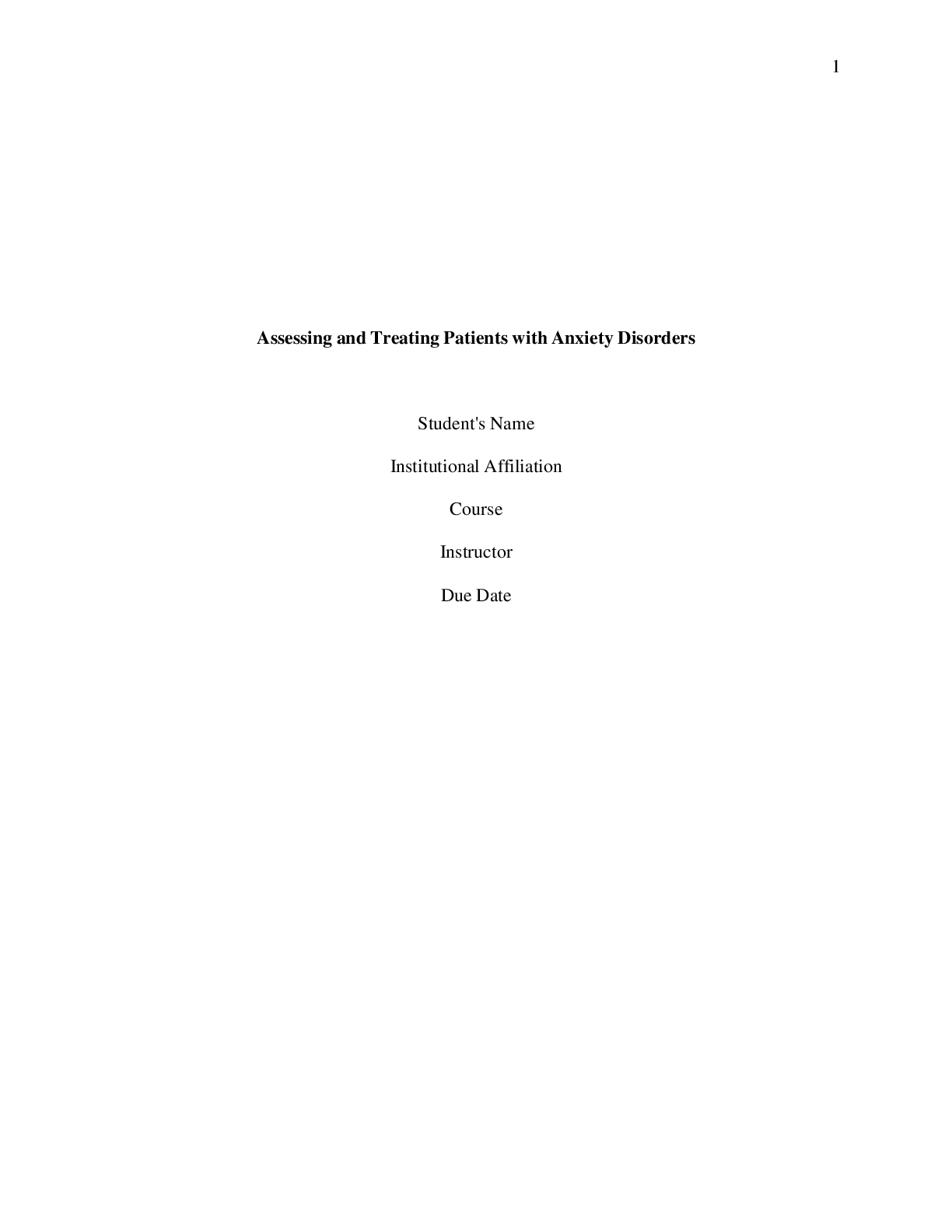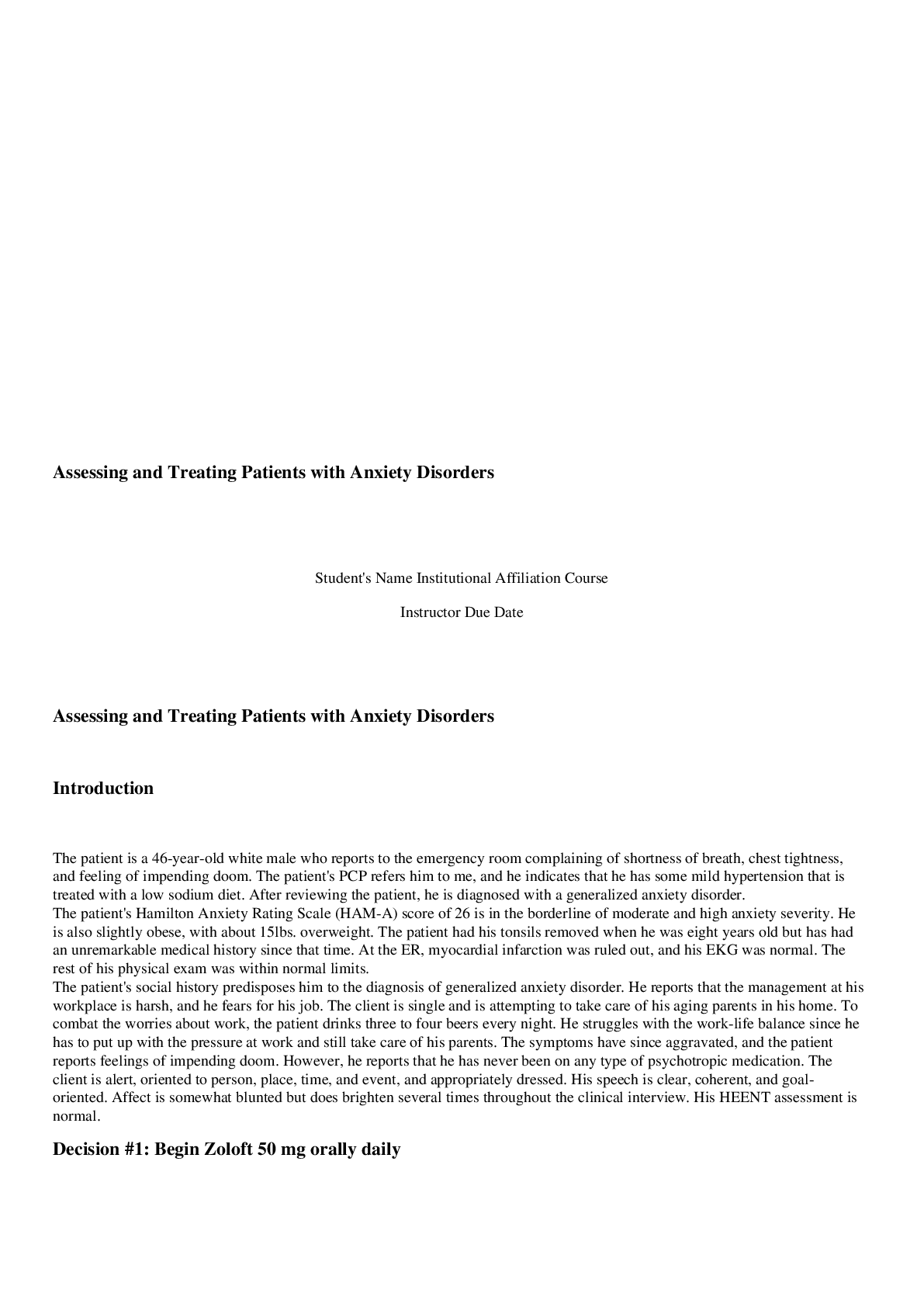*NURSING > CASE STUDY > (GRADED) NURS 6630 Week 10 Assignment: Assessing and Treating Patients With Impulsivity, Compulsivit (All)
(GRADED) NURS 6630 Week 10 Assignment: Assessing and Treating Patients With Impulsivity, Compulsivity, and Addiction / A Puerto Rican Woman with Comorbid Addiction.
Document Content and Description Below
(Solution) NURS 6630 Week 10 Assignment: Assessing and Treating Patients With Impulsivity, Compulsivity, and Addiction Impulsivity, compulsivity, and addiction are challenging disorders for patients a... cross the life span. Impulsivity is the inclination to act upon sudden urges or desires without considering potential consequences; patients often describe impulsivity as living in the present moment without regard to the future (MentalH, n.d.). Thus, these disorders often manifest as negative behaviors, resulting in adverse outcomes for patients. For example, compulsivity represents a behavior that an individual feels driven to perform to relieve anxiety (MentalH, n.d.). The presence of these behaviors often results in addiction, which represents the process of the transition from impulsive to compulsive behavior. In your role as the psychiatric nurse practitioner (PNP), you have the opportunity to help patients address underlying causes of the disorders and overcome these behaviors. For this Assignment, as you examine the client case study in this week’s Learning Resources, consider how you might assess and treat clients presenting with impulsivity, compulsivity, and addiction. Reference: MentalH. (n.d.). Impaired decision-making, impulsivity, and compulsivity: Addictions’ effect on the cerebral cortex. To prepare for this Assignment: Review this week’s Learning Resources, including the Medication Resources indicated for this week. Reflect on the psychopharmacologic treatments you might recommend for the assessment and treatment of patients requiring therapy for impulsivity, compulsivity, and addiction. The Assignment: 5 pages Examine Case Study: A Puerto Rican Woman With Comorbid Addiction. You will be asked to make three decisions concerning the medication to prescribe to this client. Be sure to consider factors that might impact the client’s pharmacokinetic and pharmacodynamic processes. At each decision point, you should evaluate all options before selecting your decision and moving throughout the exercise. Before you make your decision, make sure that you have researched each option and that you evaluate the decision that you will select. Be sure to research each option using the primary literature. Introduction to the case (1 page) Briefly explain and summarize the case for this Assignment. Be sure to include the specific patient factors that may impact your decision making when prescribing medication for this patient. Decision #1 (1 page) Which decision did you select? Why did you select this decision? Be specific and support your response with clinically relevant and patient-specific resources, including the primary literature. Why did you not select the other two options provided in the exercise? Be specific and support your response with clinically relevant and patient-specific resources, including the primary literature. What were you hoping to achieve by making this decision? Support your response with evidence and references to the Learning Resources (including the primary literature). Explain how ethical considerations may impact your treatment plan and communication with patients. Be specific and provide examples. Decision #2 (1 page) Why did you select this decision? Be specific and support your response with clinically relevant and patient-specific resources, including the primary literature. Why did you not select the other two options provided in the exercise? Be specific and support your response with clinically relevant and patient-specific resources, including the primary literature. What were you hoping to achieve by making this decision? Support your response with evidence and references to the Learning Resources (including the primary literature). Explain how ethical considerations may impact your treatment plan and communication with patients. Be specific and provide examples. Decision #3 (1 page) Why did you select this decision? Be specific and support your response with clinically relevant and patient-specific resources, including the primary literature. Why did you not select the other two options provided in the exercise? Be specific and support your response with clinically relevant and patient-specific resources, including the primary literature. What were you hoping to achieve by making this decision? Support your response with evidence and references to the Learning Resources (including the primary literature). Explain how ethical considerations may impact your treatment plan and communication with patients. Be specific and provide examples. Conclusion (1 page) Summarize your recommendations on the treatment options you selected for this patient. Be sure to justify your recommendations and support your response with clinically relevant and patient-specific resources, including the primary literature. BACKGROUND Mrs. Maria Perez is a 53 year old Puerto Rican female who presents today due to a rather “embarrassing problem.” SUBJECTIVE Mrs. Perez admits that she has had “problems” with alcohol since her father died in her late teens. She reports that she has struggled with alcohol since her 20’s and has been involved with Alcoholics Anonymous “on and off” for the past 25 years. She states that for the past 2 years, she has been having more and more difficulty maintaining her sobriety since the opening of the new “Rising Sun” casino near her home. Mrs. Perez states that she and a friend went to visit the new casino during its grand opening at which point she was “hooked.” She states that she gets “such a high” when she is gambling. While gambling, she “enjoys a drink or two” to help calm her during high-stakes games. She states that this often gives way to more drinking and more reckless gambling. She also reports that her cigarette smoking has increased over the past 2 years and she is concerned about the negative effects of the cigarette smoking on her health. She states that she attempts to abstain from drinking but she gets such a “high” from the act of gambling that she needs a few drinks to “even out.” She also notices that when she drinks, she doesn’t smoke “as much,” but she enjoys smoking when she is playing at the slot machines. She also reports that she has gained weight from drinking so much. She currently weights 122 lbs., which represents a 7 lb. weight gain from her usual 115 lb. weight. Mrs. Perez is quite concerned today because she borrowed over $50,000 from her retirement account to pay off her gambling debts, and her husband does not know. MENTAL STATUS EXAM The client is a 53 year old Puerto Rican female who is alert and oriented to person, place, time, and event. She is dressed appropriately for the weather and time of year. Her speech is clear, coherent, and goal directed. Her eye contact is somewhat avoidant during the clinical interview. When you make eye contact with her, she looks away or looks down. She demonstrates no noteworthy mannerisms, gestures, or tics. Her self-reported mood is “sad.” Affect is appropriate to content of conversation and self-reported mood. She denies visual or auditory hallucinations, and no delusional or paranoid thought processes are readily appreciated. Insight and judgment are grossly intact; however, impulse control is impaired. She is currently denying suicidal or homicidal ideation. Diagnosis: Gambling disorder, alcohol use disorder Decision Point One Select what you should do: Vivitrol (naltrexone) injection, 380 mg intramuscularly in the gluteal region every 4 weeks Antabuse (disulfiram) 250 mg orally daily Campral (acamprosate) 666 mg orally three times/day Comorbid Addiction (ETOH and Gambling) 53-year-old Puerto Rican Female Puerto Rican female Decision Point One Vivitrol (naltrexone) injection, 380 mg intramuscularly in the gluteal region every 4 weeks RESULTS OF DECISION POINT ONE Client returns to clinic in four weeks Mrs. Perez says she feels “wonderful” as she has not “touched a drop” of alcohol since receiving the injection Client reports that she has not been going to the casino, as frequently, but when she does go she “drops a bundle” (meaning, spends a lot of money gambling) Client She is also still smoking, which has her concerned. She is also reporting some problems with anxiety, which also has her concerned Decision Point Two Refer to a counselor to address gambling issues RESULTS OF DECISION POINT TWO Mrs. Perez returns in 4 weeks and reports that the anxiety that she had been experiencing is gone. She reports that she has met with the counselor, but she did not really like her. She also started going to a local meeting of Gamblers Anonymous. She states that last week, for the first time, she spoke during the meeting. She reports feeling supported in this group. Decision Point Three Explore the issue that Mrs. Perez is having with her counselor, and encourage her to continue attending the Gamblers Anonymous meetings [Show More]
Last updated: 1 year ago
Preview 1 out of 10 pages
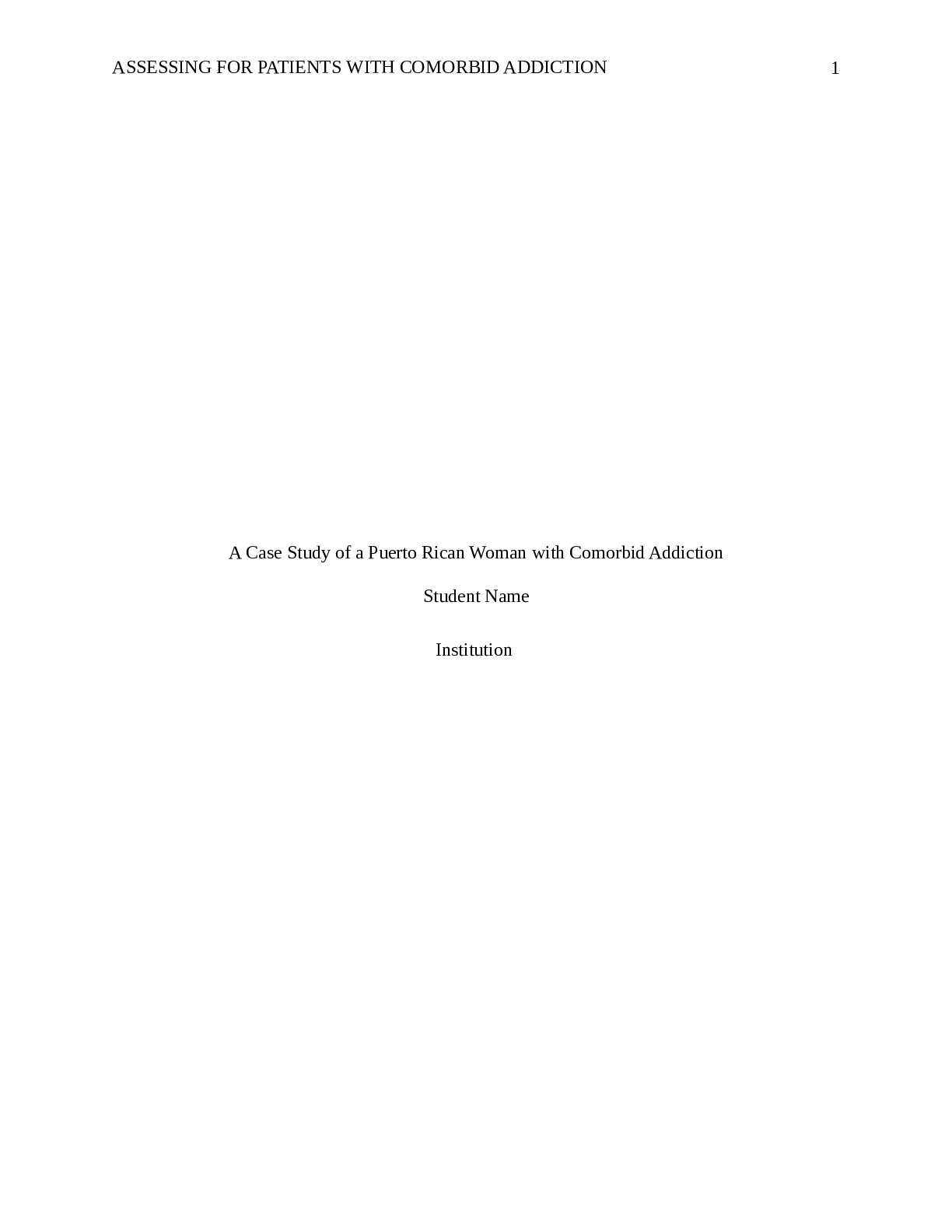
Reviews( 0 )
Document information
Connected school, study & course
About the document
Uploaded On
Jul 25, 2022
Number of pages
10
Written in
Additional information
This document has been written for:
Uploaded
Jul 25, 2022
Downloads
0
Views
78
.png)

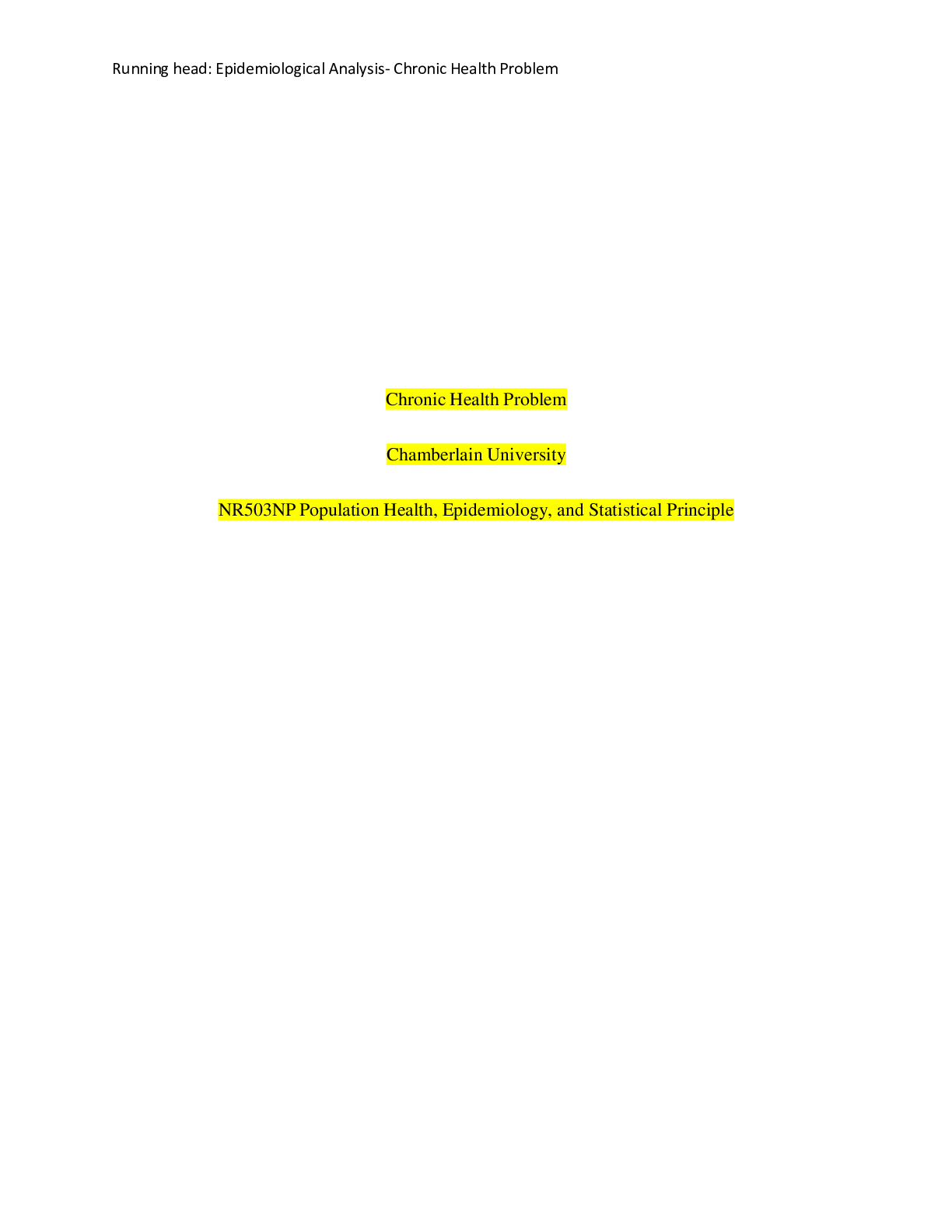

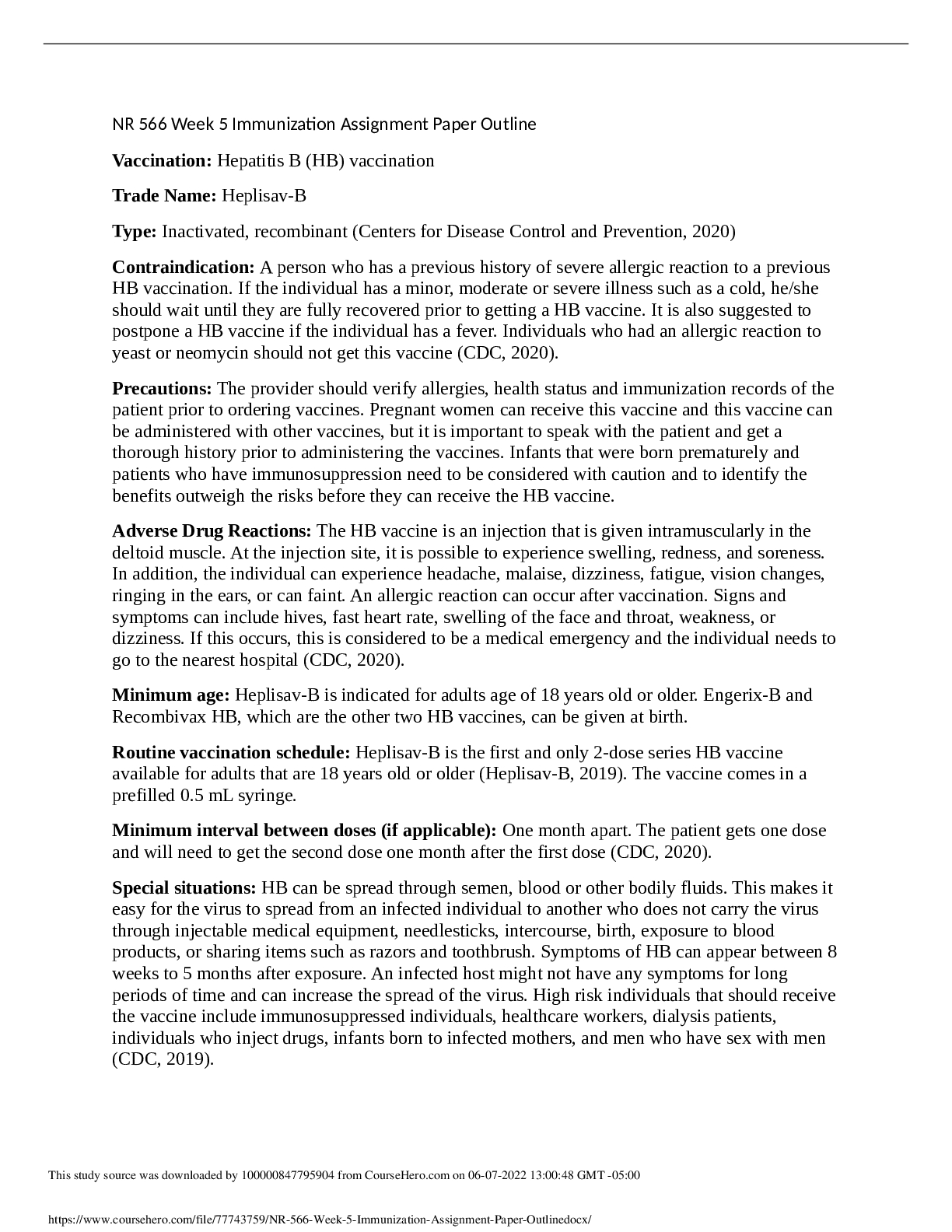
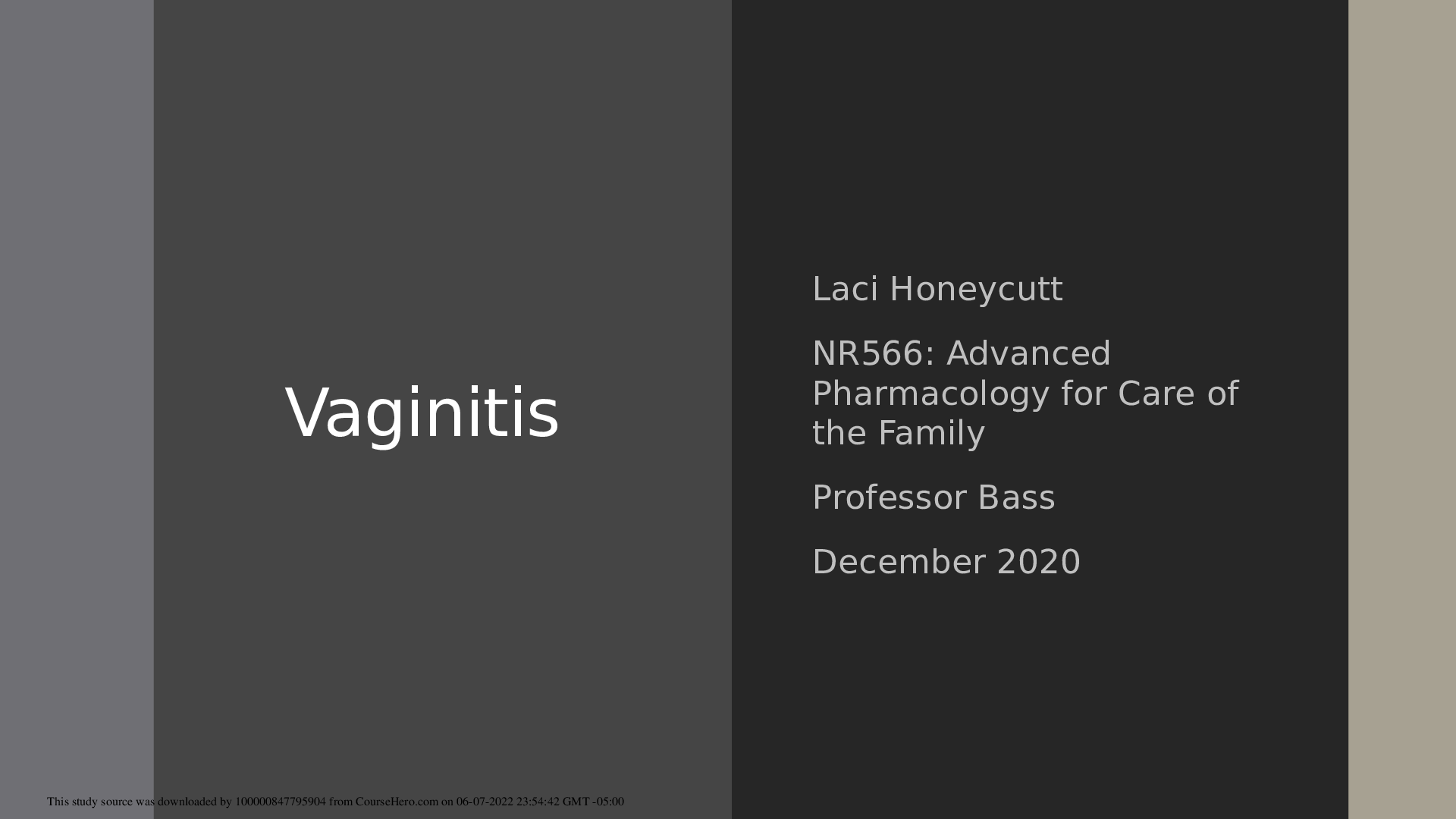
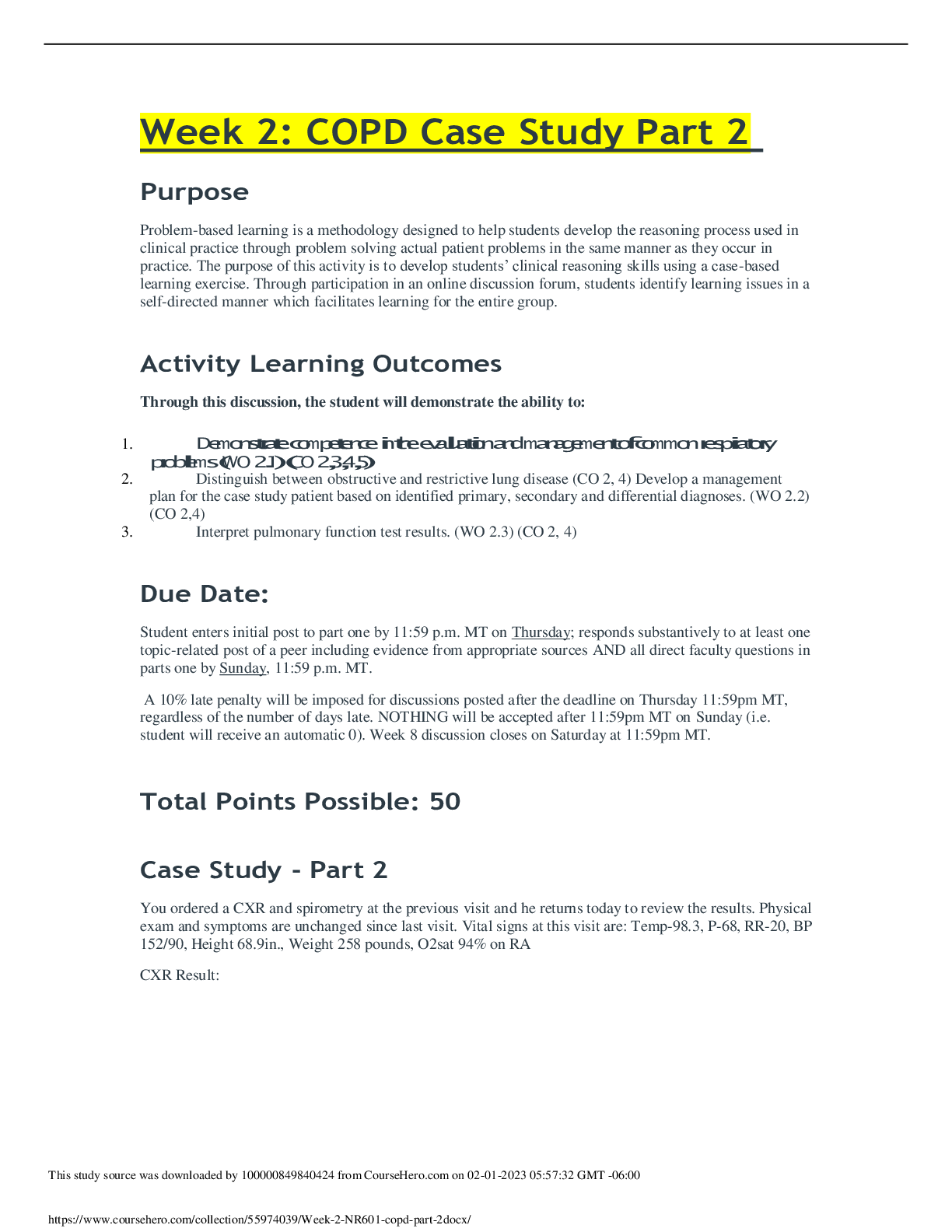
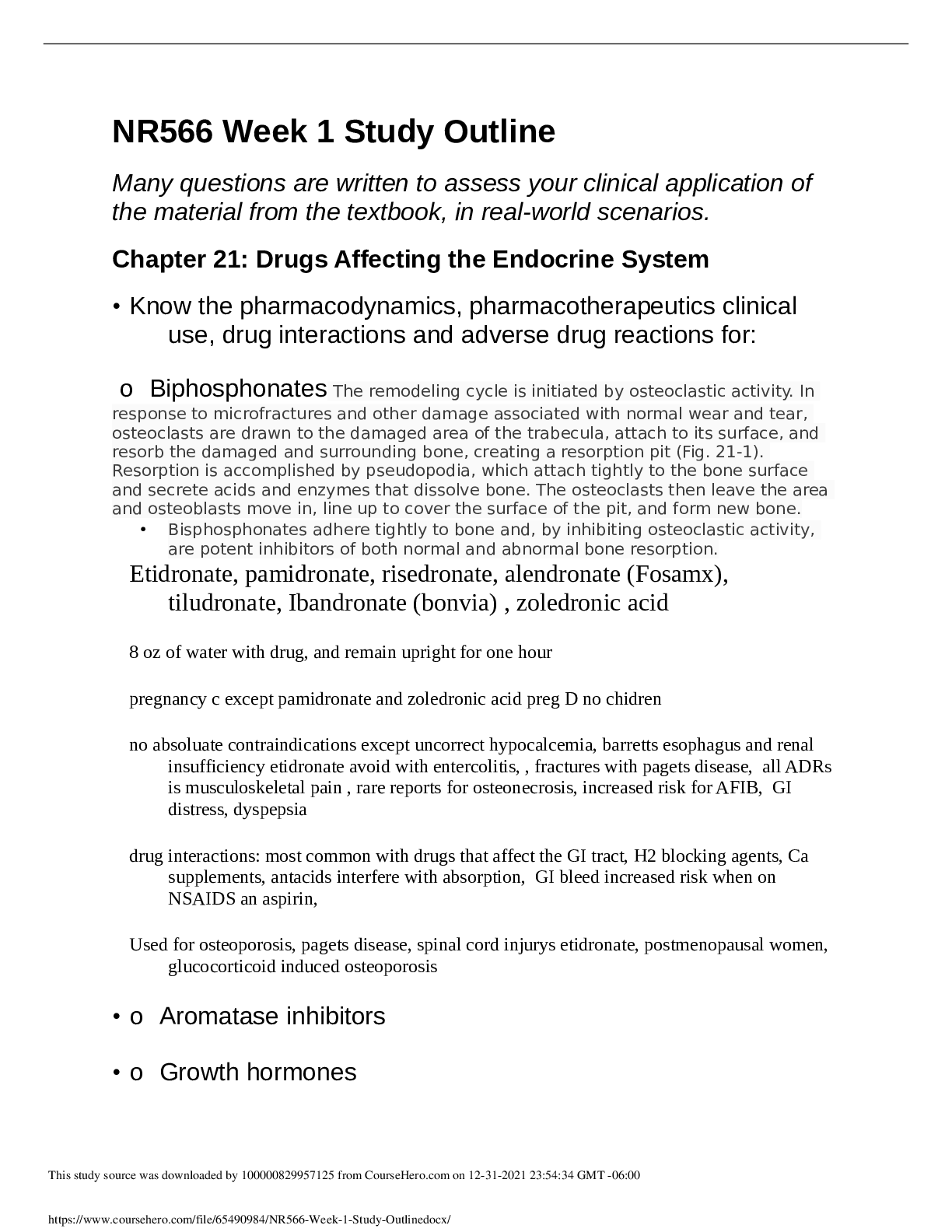
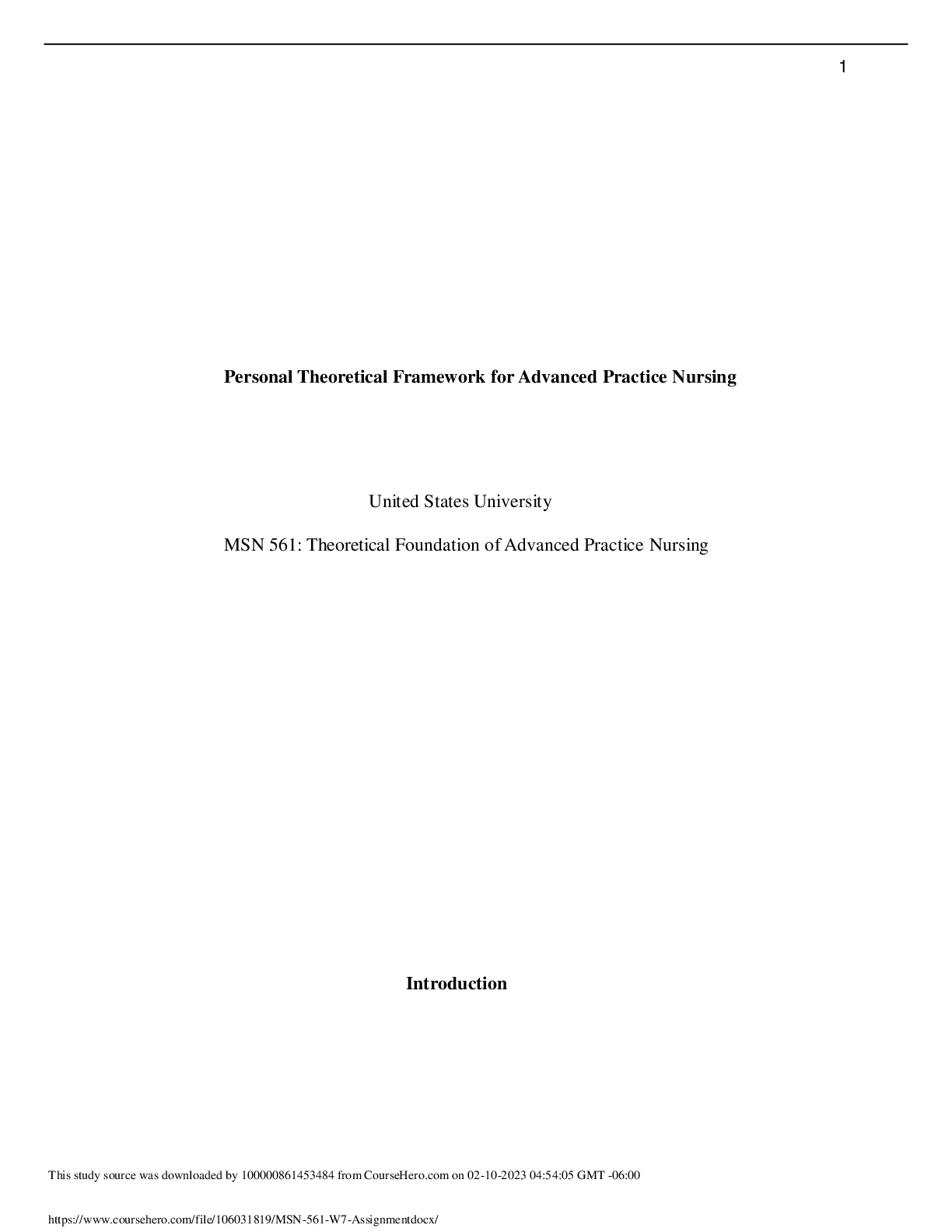
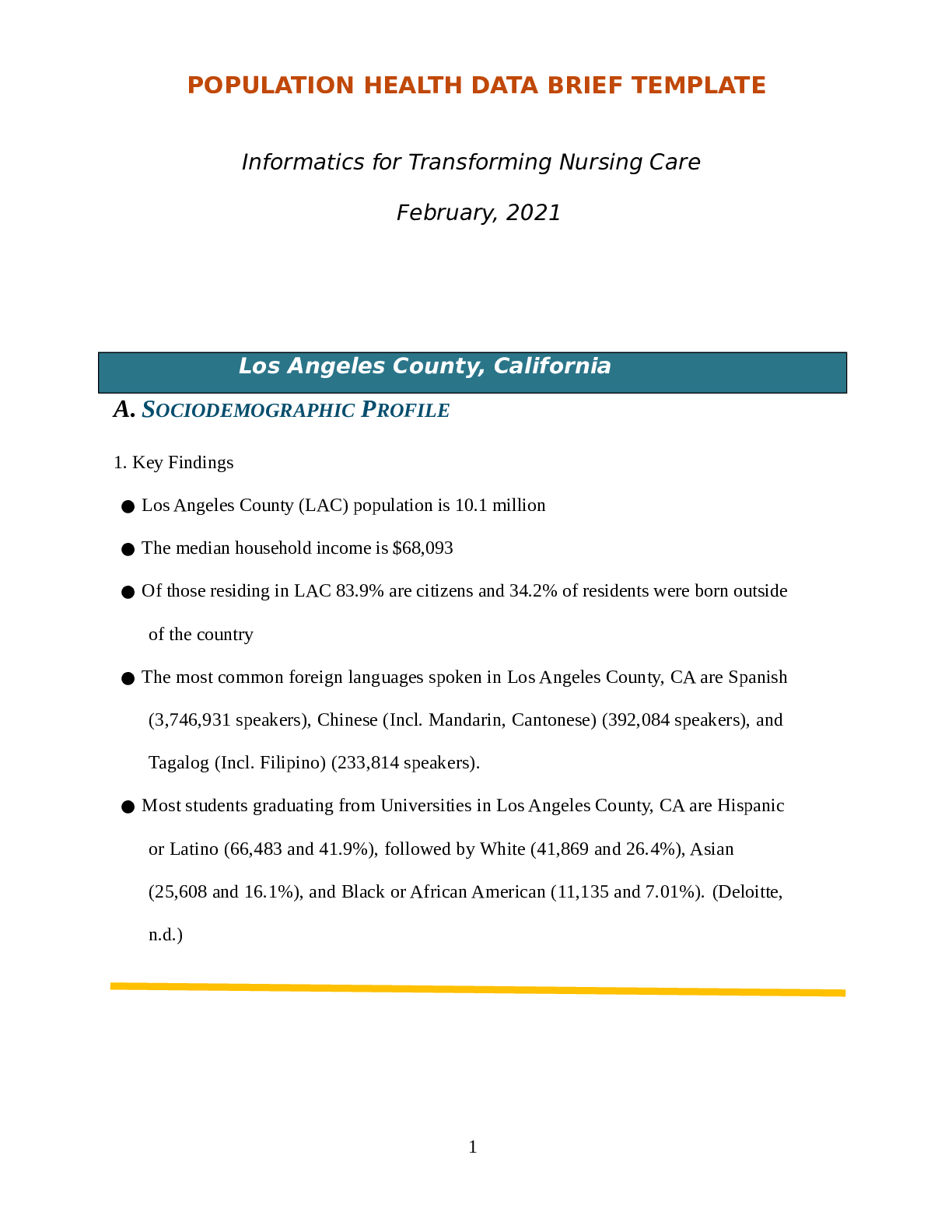

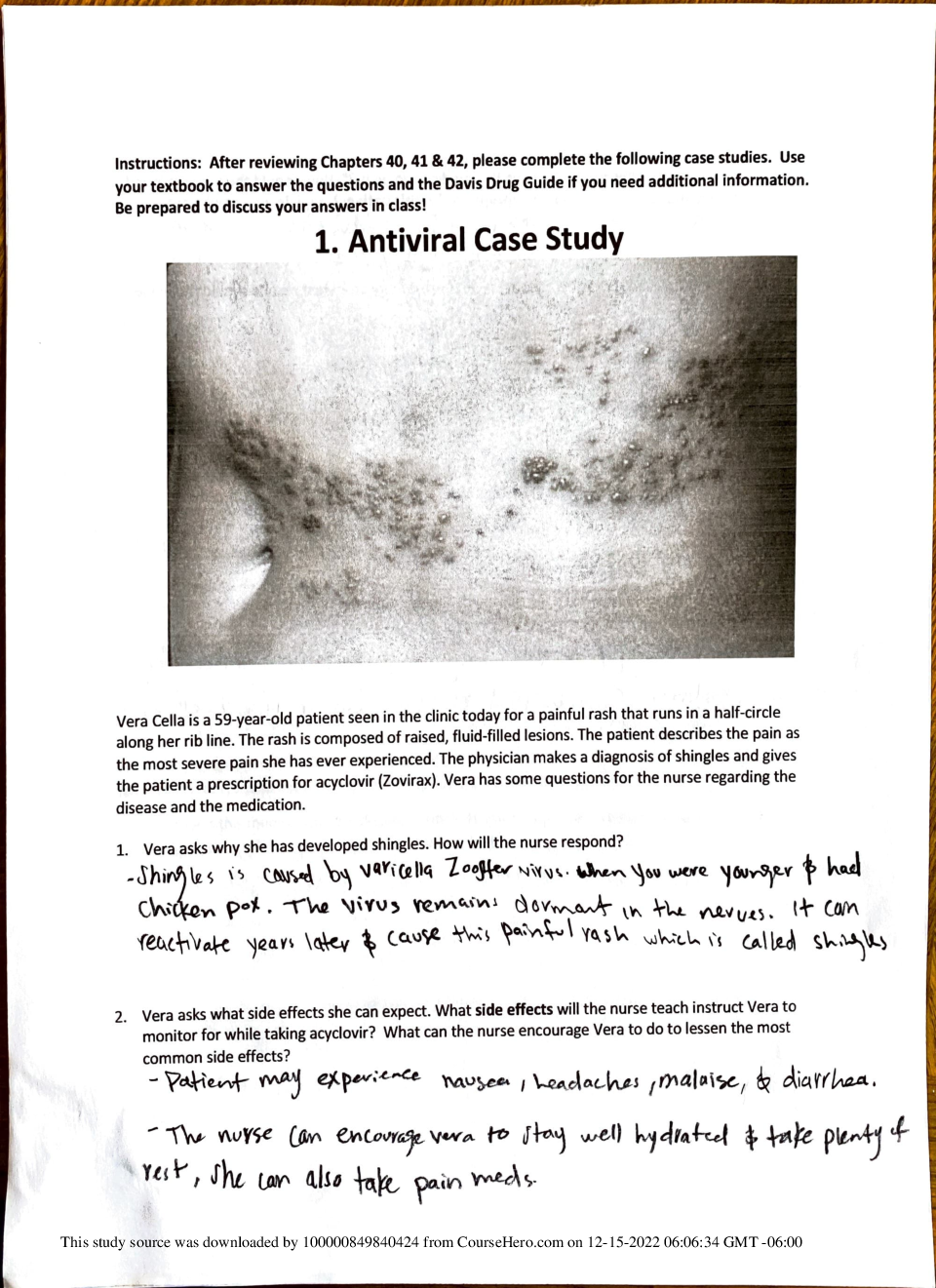
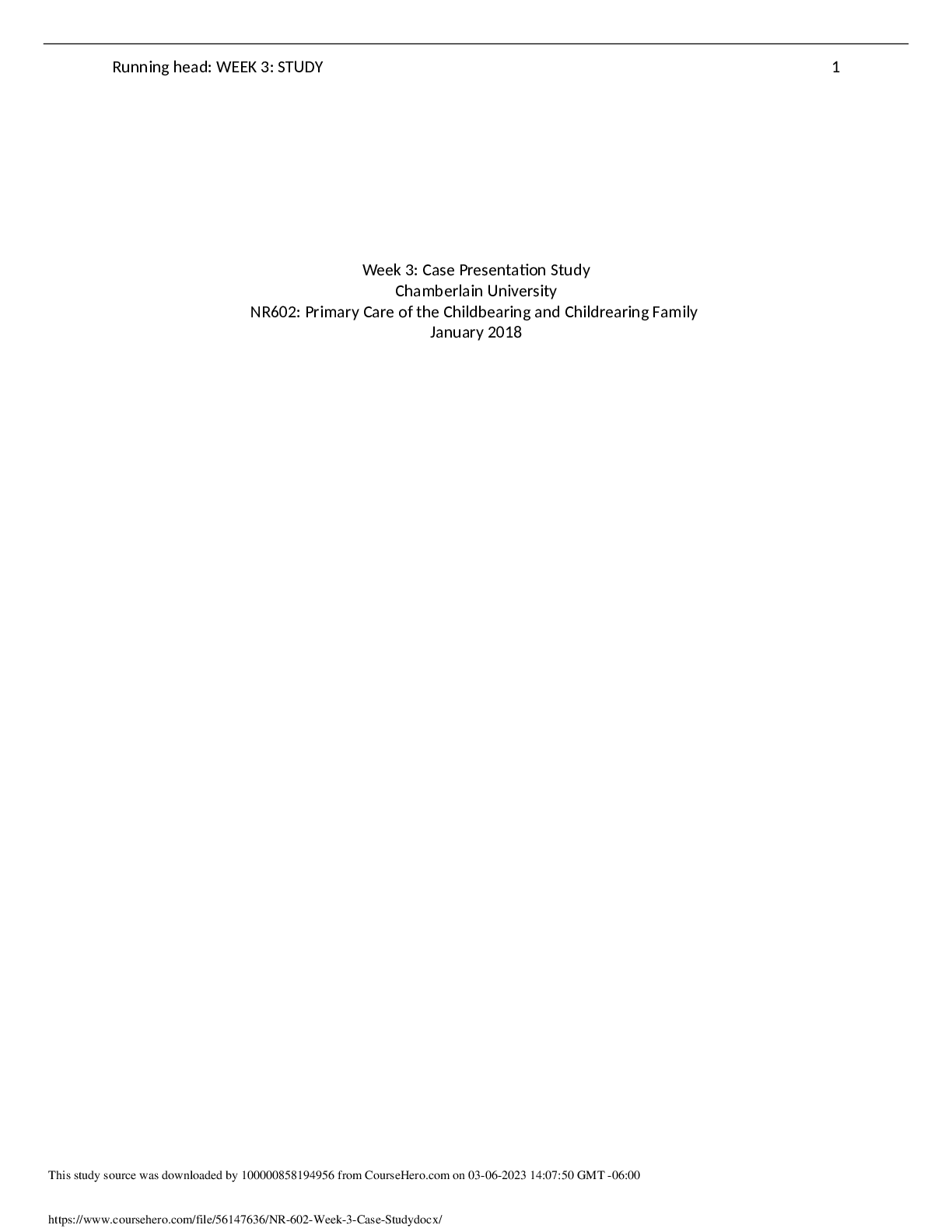

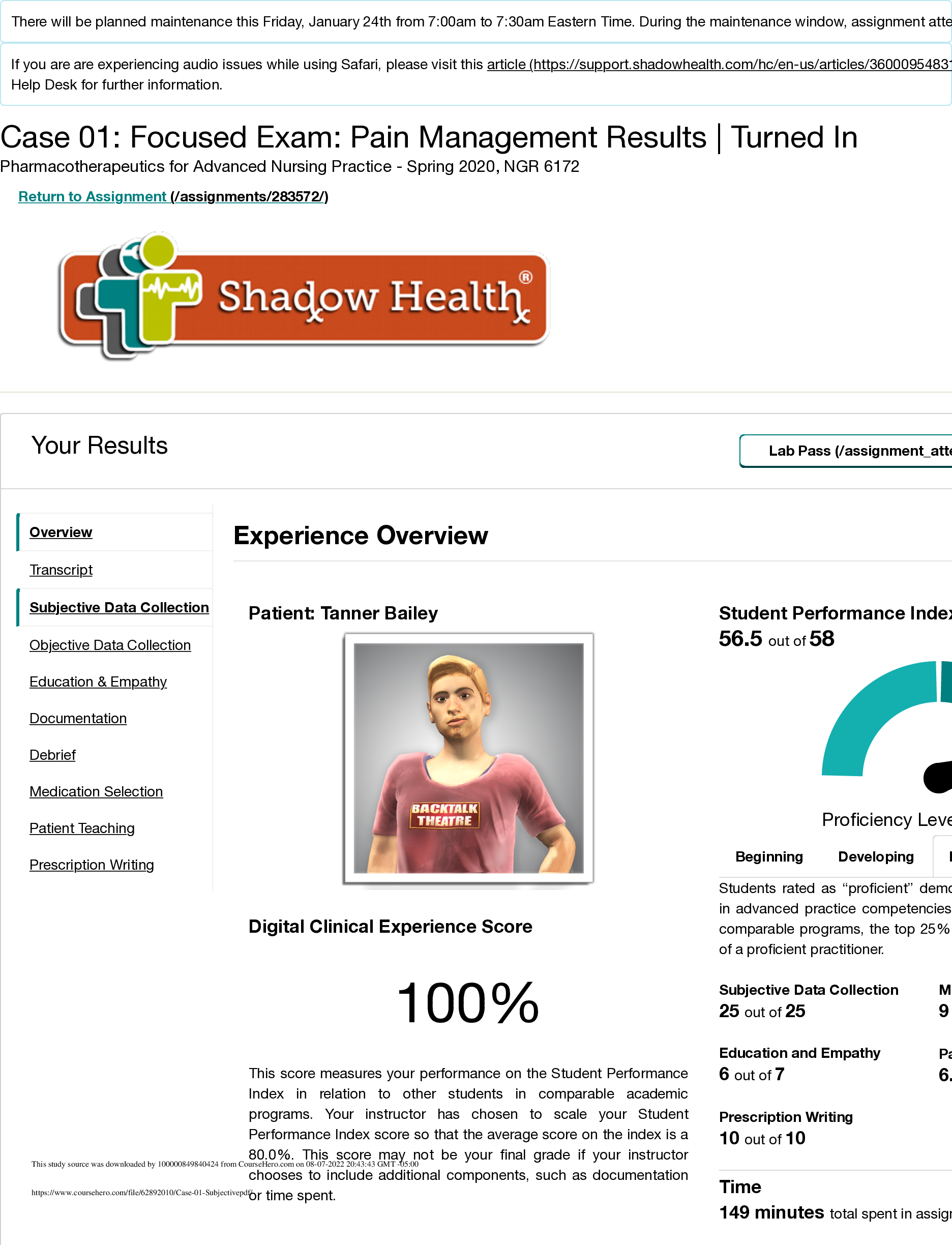
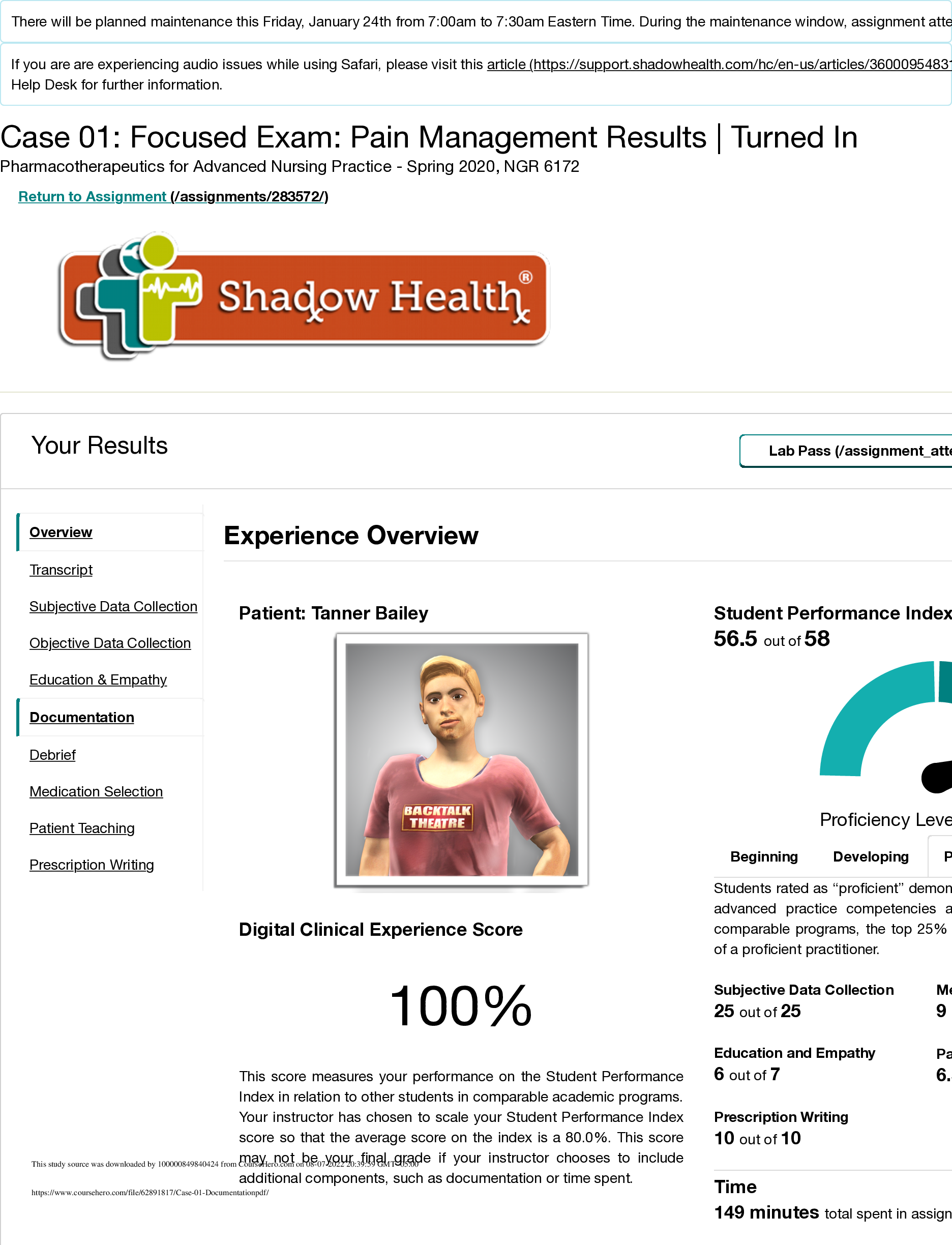

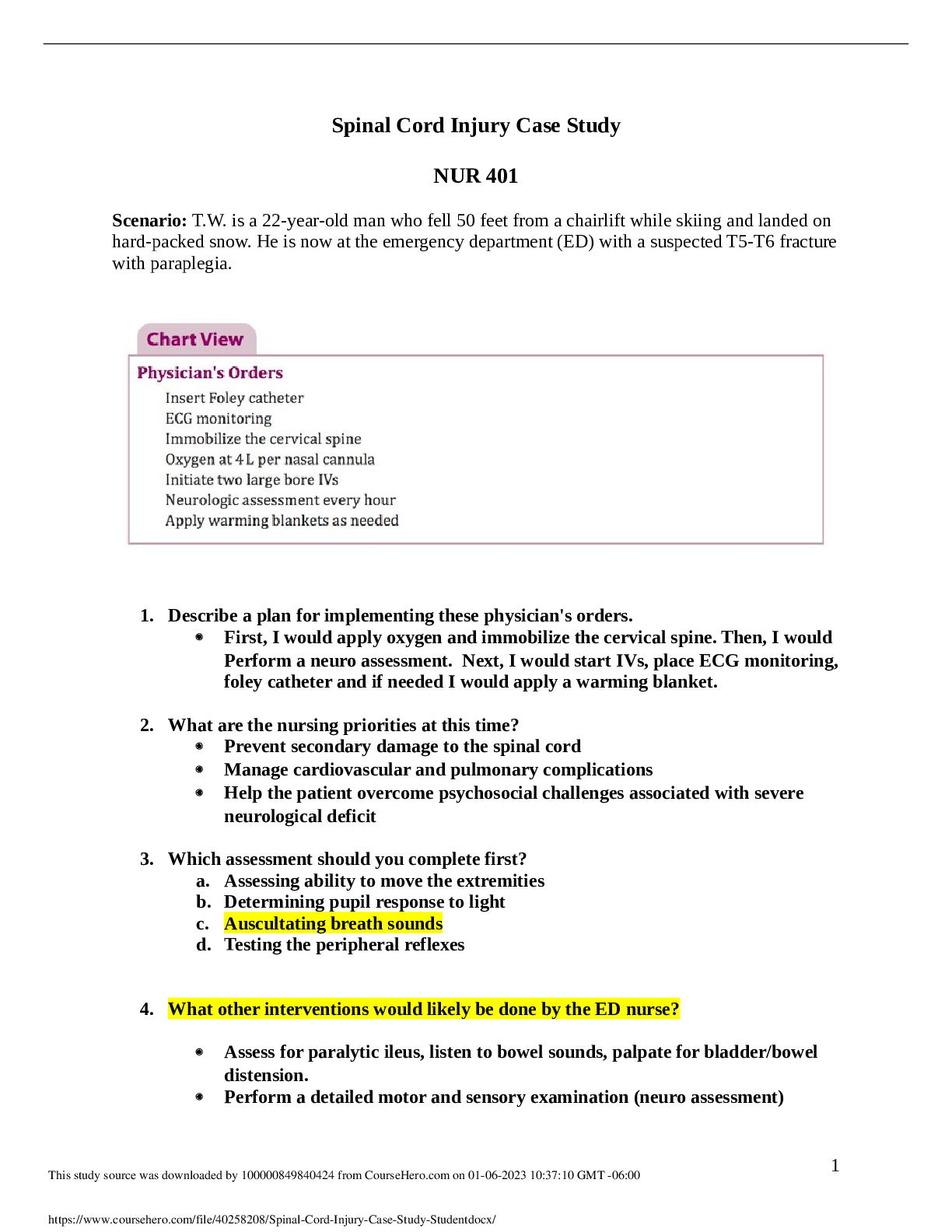
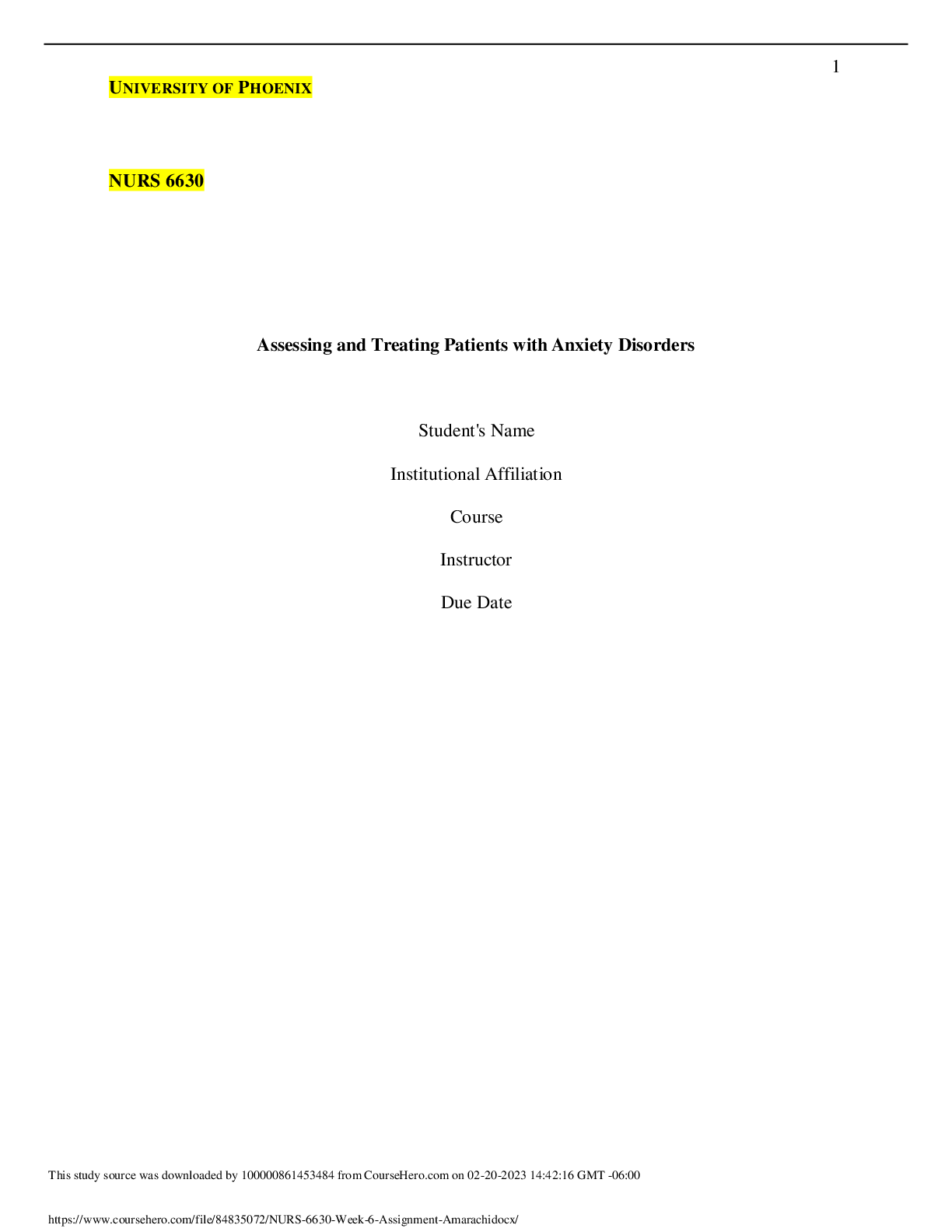
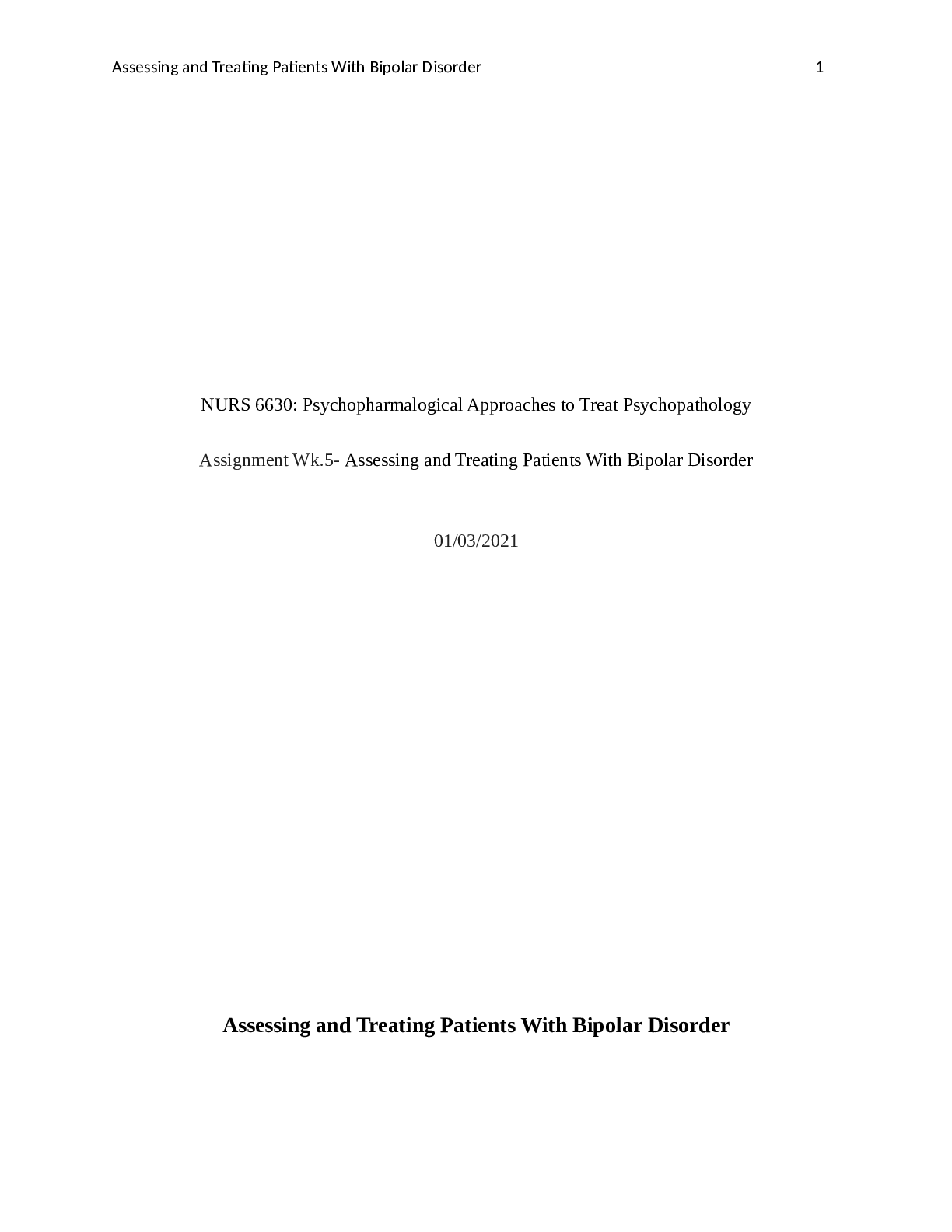
 (1).png)


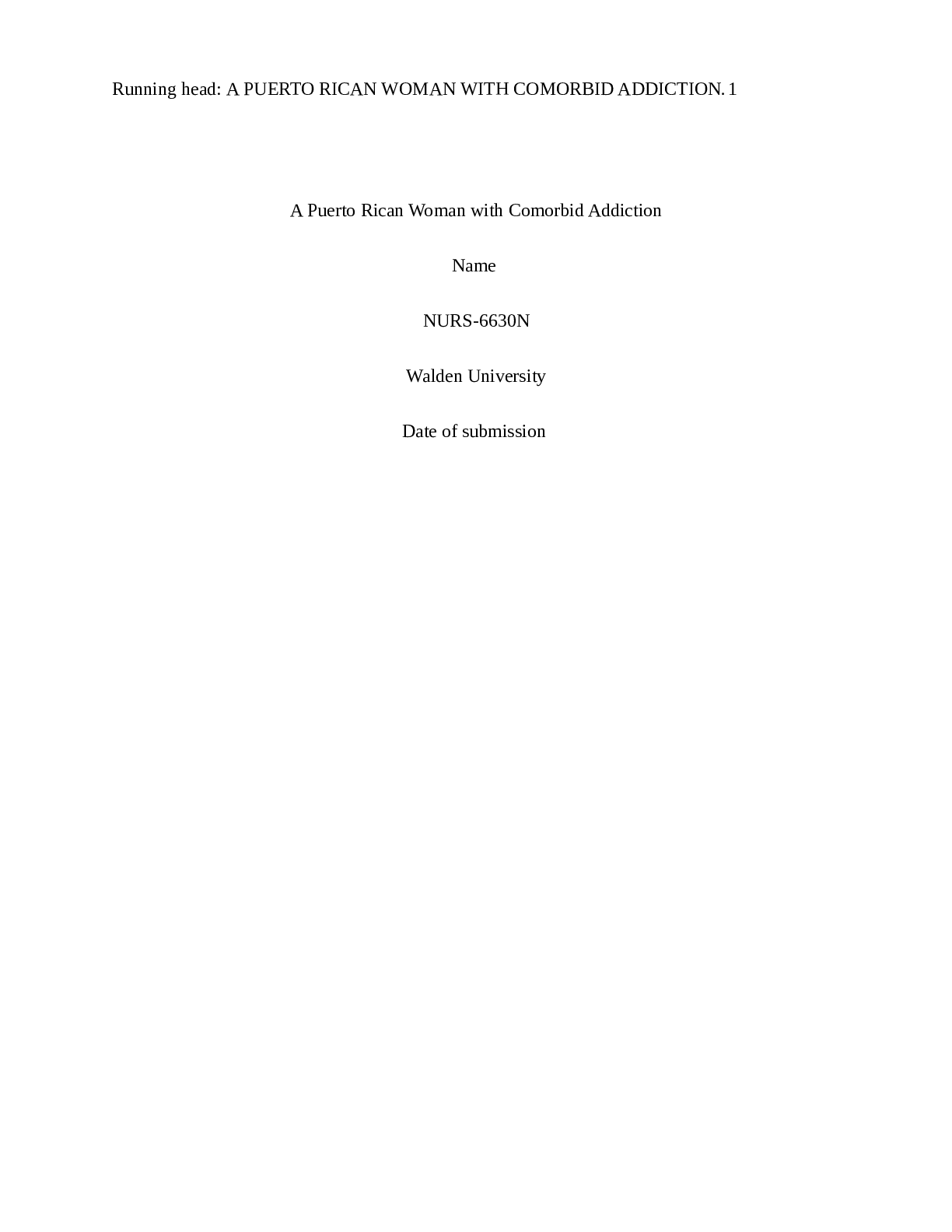
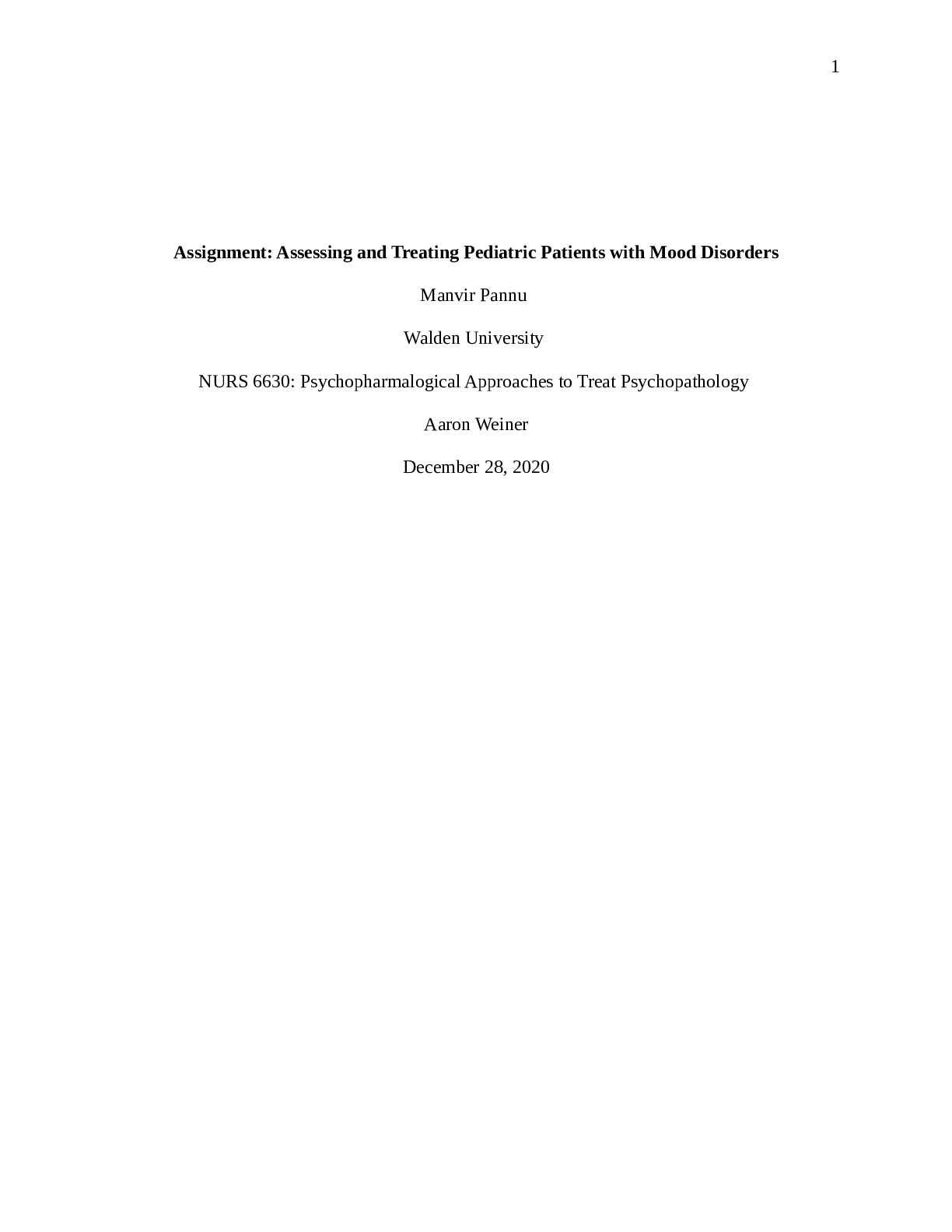
 NURS 6630 Week 4 Assignment.png)


